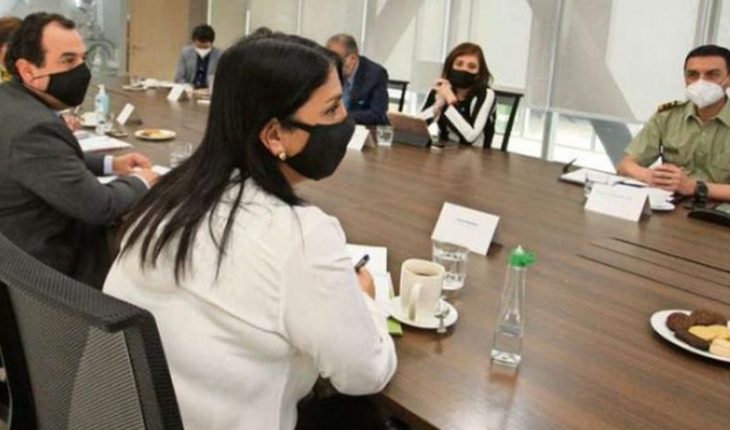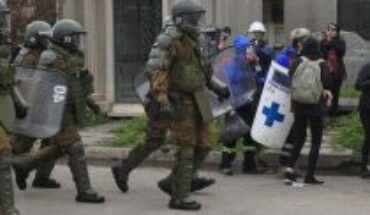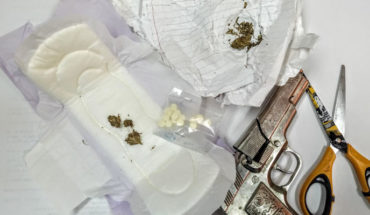Less than a week after the Baleo of two minors in a police operation in a center of the Sename, authorities from various portfolios met to start a working table to review the protocols of those circumstances.
At the first session, participants agreed that the agreements they reach should ensure that what happened Wednesday at the Carlos Macera home in Talcahuano “do not happen again,” said Social Development Minister Karla Rubilar, whose entity convened the appointment.
The instance was attended by authorities from the ministries of Justice and The Interior, as well as representatives of the Sename, the Specialized Protection Service for Children and Adolescents, the Ombudsman’s Office, Carabineros and Unicef.
Following the session, Rubilar noted that the dialogue will address the full action of the State in proceedings with minors, not just police operation.
“Many times it should not be Carabineros who should be the first call to make contact with a boy, girl or adolescent, particularly the most vulnerable,” he said.
A similar conclusion was made by the Undersecretary of the Interior, Juan Francisco Galli, who commented that police should go only if there were “public safety problems”, so it is relevant to clearly determine when Carabineros’ attend is due.
As the Prosecutor’s Office stated in formalization to the uniform who is in pre-trial detention accused of the shootings, the shooting came after the policeman came to a call from a mentally challenged resident who suffered a decompensation. In that context the second sergeant would have been involved in a fight with home children, which ended with three shots of teenagers.
“There is an inescapable responsibility for the Ministry of Health to take necessary measures to ensure that Carabineros is not exactly the first alternative or call to solve problems that undoubtedly do not correspond to a criminal situation,” agreed children’s advocate Patricia Muñoz.
For his part, the Minister of Justice, Hernán Larraín, emphasized the revision of the protocol envisages all kinds of procedures involving children, with particular emphasis on ensuring the protection of those in the custody of the State because of their vulnerability status.
“That is our responsibility. We’ve had problems, we haven’t done it quite well, but we’re going to make it better,” he said.
This is the archbishop
In the midst of the analysis, the Archbishopric of Concepción, who administers the foundation to which the Baleo enclosure belongs, approached the debate with a deep reflection on the context in which the events were given.
In a 10-point letter, Archbishop Fernando Chomalí regretted that the public system does not have the capacity to deal with cases such as that of the decompensated young man in a timely manner, which he believes shows the “injustice” in access to health.
He also criticized law enforcement to enter a residence where vulnerable people are located. “It demonstrates the absence of proper protocols for these complex situations and little knowledge of the reality of these children and adolescents,” he said.
And he defied that these episodes, coupled with the difficulties that minors of the Sename have in accessing the educational system, the “failures” of strategies to give them attention, and the insufficient budget that residences have shows the “indifference of society at large in the face of this painful reality”.
“What lived in the residence should lead us to recognize that Chilean society is sick with indifference, individualism, lack of concern for others, sick of a materialistic conception of life that has been pauperizing the State and leaving many wounded along the way that, moreover, no one wants to help,” she said.





